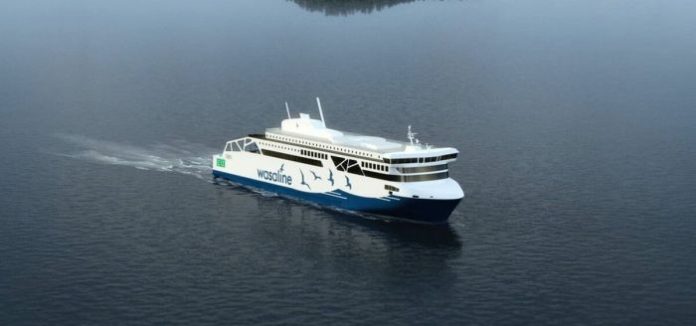New Delhi, September 30, 2020: Held in association with Cruise Ship Interiors Expo, Europe, on 25 September 2020 as part of Riviera’s Passenger Shipping Webinar Week, webinar panellists included Wasaline chief executive Peter Ståhlberg, Swan Hellenic Cruises chief executive Andrea Zito, Tillberg Design of Sweden partner and executive director Fredrik Johansson and RINA project manager for new buildings XL projects Piero Moncheroni.
The panel sought to gauge how the global pandemic has both impacted the passenger shipping sector and also generated innovations in design and technologies used to keep passengers safe.
They agreed the cruise and ferry industry needs to adapt to new coronavirus safety conditions, with ships regularly sanitised and interiors modified to facilitate continuously high hygiene levels.
Mr Zito pointed to the “unprecedented” operational and market conditions for the passenger shipping industry and said ship operators were already adapting and improving hygiene and procedures.
“After six months, we are trying to get back to normal, but we are still far from normal,” he said. “We will adapt and will progress, but with Covid-19, there are still many unknowns of this concealed enemy that are difficult to fight.”
Mr Zito said he is looking for more support from shore and authorities to help the cruise business.
“To get back to normality, we need a vaccine and ability to test and get results in a few minutes,” he said.
Underscoring the need for collaborative action, Mr Ståhlberg said authorities need to keep national borders open for travel, that passengers to be tested before they board ferries and that the industry needs to increase the use of automated boarding procedures.
“It is good to work as one team,” he said. “We need action today to stop the virus from coming on board.”
Mr Ståhlberg also outlined a case within his own business where mitigation measures have been taken on a newbuilding project that was well underway when the pandemic hit. Wasaline recently floated out a new ferry at RMC Finland shipyard, to be named Aurora Botnia, that was originally scheduled for delivery in May 2021.
“We have adapted what we could do with the shipyard,” said Mr Ståhlberg, noting changes in interior design and materials.
For the existing fleet, he said new manuals and checklists have to be made for coronavirus pandemic protection according to the reports published in rivieramm.com.
Mr Johansson agreed that while it is relatively straightforward to impement design changes on newbuildings, mitigation measures are harder to impement within the existing fleet.
“There will be some layout changes with more hygiene and cleaning of existing ships,” he said. “The big changes will be on new platforms.”
Mr Johansson said these changes will come with significant added cost.
“We have to comply with requirements, but this has long-term effects on profitability,” he said. “We need look at using space on board and being prepared. We need to work collectively in designing ships and operating them.”
Mr Moncheroni laid out some ways in which class requirements will help to prepare passenger ships for business during the global crisis.
“New standards for materials are to be implemented in the marine industries and regulation,” he said. “HVAC design and arrangements will change, with advanced filtering, no recirculation and containment capabilities.”
Mr Moncheroni said design changes would need to include increasing onboard hospital facilities, having areas to isolate people and having increased onboard networks for IT applications.
Panellists also discussed how the ongoing pandemic has affected newbuild and refurbishment projects, with many postponed and many shipyard options cancelled.
Polls:
Asked when they thought the cruise and ferry business will come back to normal, around 57% of attendees thought it would take three years, another 23% said it would be about 12 months, 8% six months, 7% five years, and 5% thought passenger ship sector would never return to normal.
In another poll, 58% of attendees thought the new normal would include more hand washing, social distancing and use of masks for the next two to three years; 42% disagreed.
In an open question, attendees were asked for the most worrying aspects about restarting operations. Among the most significant trends in the answers was fear over the potential for new outbreaks of coronavirus damaging passenger confidence and the cruise sector’s reputation and public trust.
Attendees were also worried about the length of time passenger shipping will be affected by the global Covid-19 crisis and resulting low passenger numbers, and how long it will take to return to profitability.






























